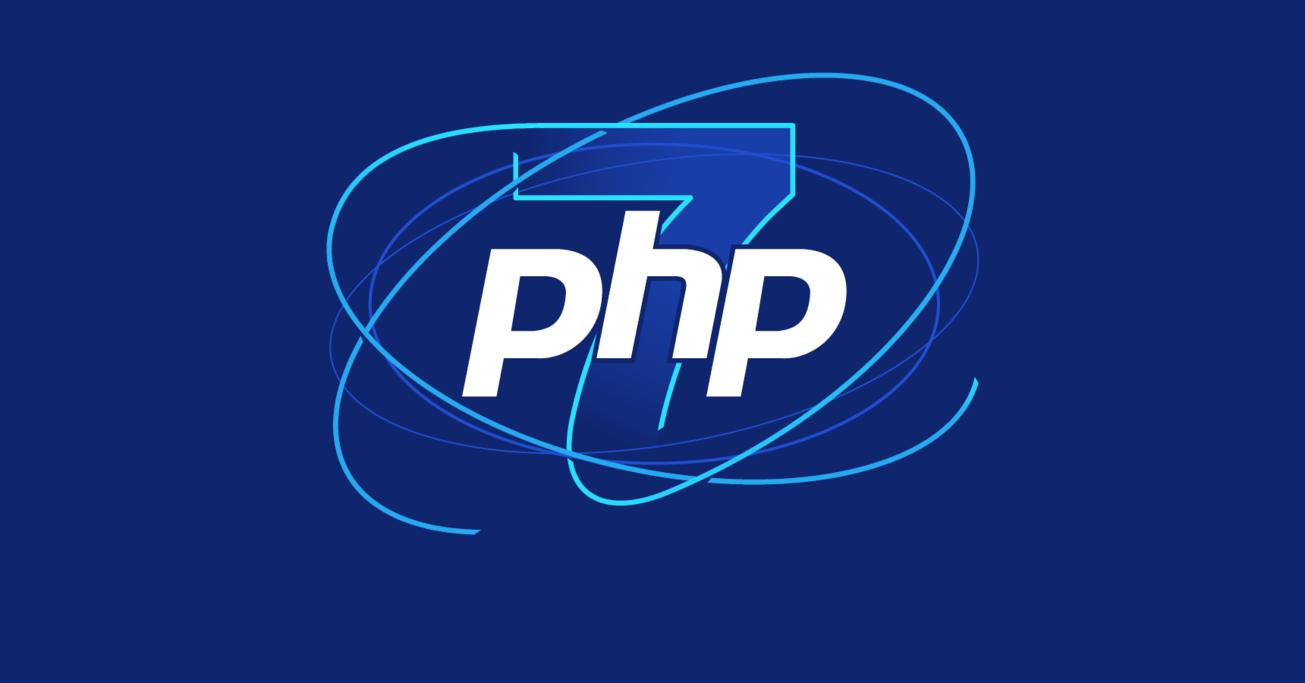PHP 8.3: The Evolution Continues - Why You Should Upgrade Now
Discover the significant performance gains, new features, and developer enhancements in PHP 8.3. Learn why upgrading is crucial for modern web development and how to get started.

In the fast-paced world of web development, staying updated with the latest technologies is not just an advantage, it's a necessity. PHP, the backbone of countless websites and applications, continues to evolve rapidly. While PHP 8.4 is the very latest, PHP 8.3, released in November 2023, represents a significant leap forward, solidifying PHP's position as a robust, high-performance language for modern web applications. Many development teams are actively migrating to or have recently embraced PHP 8.3 due to its compelling benefits.
This blog post will delve into the key features and improvements that PHP 8.3 brings to the table, demonstrating why upgrading to this version is a smart move for enhanced performance, improved developer experience, and more maintainable code.
The Evolution Continues: Why PHP 8.3 Matters
PHP 8.x series has consistently focused on performance enhancements and developer ergonomics, and PHP 8.3 is no exception. It builds upon the strong foundations laid by PHP 8.0, 8.1, and 8.2, offering a more refined and efficient development environment.
Key Features and Enhancements in PHP 8.3
Let's explore some of the most impactful changes in PHP 8.3:
-
Typed Class Constants: This is a game-changer for type safety and code clarity. Previously, class constants did not support explicit type declarations, leading to potential inconsistencies. With PHP 8.3, you can now declare types for your class constants, ensuring type compatibility and making your code more predictable and robust. This has significant implications for interfaces, abstract classes, and child classes, allowing you to enforce type consistency through inheritance.
PHPclass MyConfig { public const string API_KEY = 'your_secret_key'; public const int MAX_RETRIES = 3; } -
PHPjson_validate()Function: Dealing with JSON data is a common task in web development. Prior to PHP 8.3, validating JSON typically involved decoding it and then catching potential exceptions, which could be memory-intensive for large JSON payloads. The newjson_validate()function simplifies this by allowing you to validate JSON syntax without constructing associative arrays or objects, thereby conserving memory and improving efficiency.if (json_validate($maybeJsonString)) { // Safely decode and process the JSON $data = json_decode($maybeJsonString); } else { // Handle invalid JSON } -
PHP#[Override]Attribute: This new attribute significantly improves code readability and safety, especially in projects with complex inheritance hierarchies. By explicitly marking a method with#[Override], you signal that it's intended to override a method from a parent class or implement an interface method. If the parent method signature changes or is removed, PHP will throw a compile-time error, preventing silent bugs and making refactoring much safer.class ParentClass { public function doSomething(): void { /* ... */ } } class ChildClass extends ParentClass { #[Override] public function doSomething(): void { /* ... */ } } -
Dynamic Class Constant and Enum Member Fetch Support: PHP 8.3 introduces a more intuitive syntax for dynamically fetching class constants and enum members, replacing the more cumbersome
PHPconstant()function. This enhances code readability and flexibility, particularly useful in meta-programming or when working with configurable systems.class MyClass { public const THE_CONSTANT = 'some_value'; } $constantName = 'THE_CONSTANT'; echo MyClass::{$constantName}; // New, cleaner syntax -
New Random Extension Additions: Building on the improvements in PHP 8.2, PHP 8.3 further enhances the
Randomextension with new methods likeRandom\Randomizer::getBytesFromString()andRandom\Randomizer::getFloat()/nextFloat(). These additions provide more granular control and flexibility for generating random values, which is crucial for cryptography, simulations, and various other applications.
Performance Improvements in PHP 8.3
Beyond the exciting new features, PHP 8.3 also brings notable performance enhancements. While exact benchmarks can vary based on application type and workload, general improvements include:
-
Optimized JIT Compiler: The Just-In-Time (JIT) compiler, introduced in PHP 8.0, continues to be refined, leading to faster script execution and reduced CPU time.
-
More Efficient Opcode Execution: PHP 8.3 utilizes more efficient ways to interpret and execute opcodes, contributing to faster script processing.
-
Improved Garbage Collection: Enhancements to the garbage collection mechanism result in more efficient memory management and freeing of unused objects.
-
Faster Internal Functions: Several internal functions have been optimized for better performance, such as
file()when checking error flags and certain DOM operations.
These underlying optimizations translate to real-world benefits: faster page load times, quicker API responses, and a more responsive user experience for your applications.
Deprecated Features and Breaking Changes
As with any major release, PHP 8.3 includes some deprecations and minor breaking changes to pave the way for future improvements and address inconsistencies. Developers should review the official migration guide for a comprehensive list, but some notable changes include:
-
Calling
get_class()andget_parent_class()without arguments is now deprecated. -
unserialize()now emitsE_WARNINGinstead ofE_NOTICEfor certain error conditions, promoting more robust error handling. -
Changes to the behavior of increment/decrement operators on empty or non-numeric strings.
Proactive identification and refactoring of deprecated patterns are crucial for a smooth upgrade process and to ensure future compatibility. Tools like Rector can greatly assist in automating this process.
Why Upgrade to PHP 8.3?
The benefits of upgrading to PHP 8.3 are compelling:
-
Performance Gains: Faster applications mean better user experience, lower server costs, and improved SEO.
-
Enhanced Developer Experience: New features like typed class constants and the
#[Override]attribute lead to cleaner, more maintainable, and less error-prone code. -
Improved Type Safety: Stronger typing reduces bugs and makes code easier to understand and refactor.
-
Better Security: Each new PHP version brings security fixes and improvements, protecting your applications from known vulnerabilities.
-
Access to Modern Features: Staying current allows you to leverage the latest language constructs and best practices, keeping your skills and applications up-to-date.
-
Community Support: Actively supported versions receive bug fixes and security updates, ensuring the longevity and stability of your projects.
How to Upgrade
Upgrading PHP requires careful planning and execution. Here's a general approach:
-
Backup Everything: Before making any changes, always back up your code, databases, and server configurations.
-
Test Environment: Set up a staging or development environment that mirrors your production setup.
-
Dependency Check: Ensure all your project dependencies (frameworks, libraries, CMS, etc.) are compatible with PHP 8.3. Update them if necessary.
-
Code Analysis: Use static analysis tools (like PHPStan, Psalm, or Phan) and Rector to identify potential compatibility issues and deprecated code.
-
Configuration Updates: Update your web server (Apache, Nginx) and PHP-FPM configurations to point to the new PHP 8.3 version.
-
Install PHP 8.3: Install the PHP 8.3 packages and necessary extensions on your server.
-
Thorough Testing: Rigorously test your application's functionality, performance, and error handling in the new environment.
-
Monitor Production: After deploying to production, closely monitor your application for any unexpected issues.
Many hosting providers offer easy ways to switch PHP versions. For custom server setups, consult the official PHP documentation and your distribution's package management guides.
Conclusion
PHP 8.3 is more than just another minor release; it's a testament to PHP's continuous commitment to being a powerful, efficient, and developer-friendly language. By embracing its new features and performance optimizations, you can write cleaner, faster, and more robust applications. The adoption rate of PHP 8.3 among development teams is rapidly growing, highlighting its value and the community's readiness to leverage its advancements.
Don't let your projects fall behind. Make the move to PHP 8.3 and unlock a new level of performance and productivity for your web development endeavors. The future of PHP is bright, and PHP 8.3 is a shining example of its ongoing evolution.





